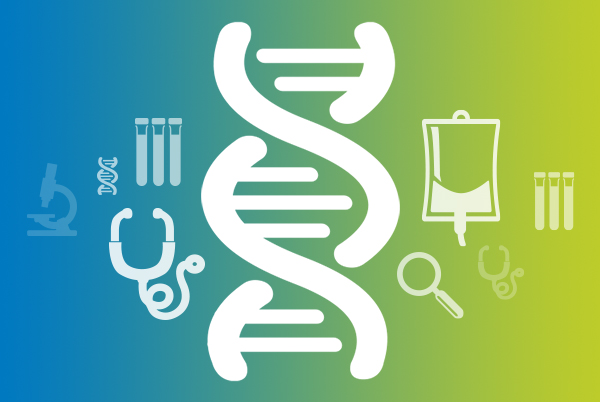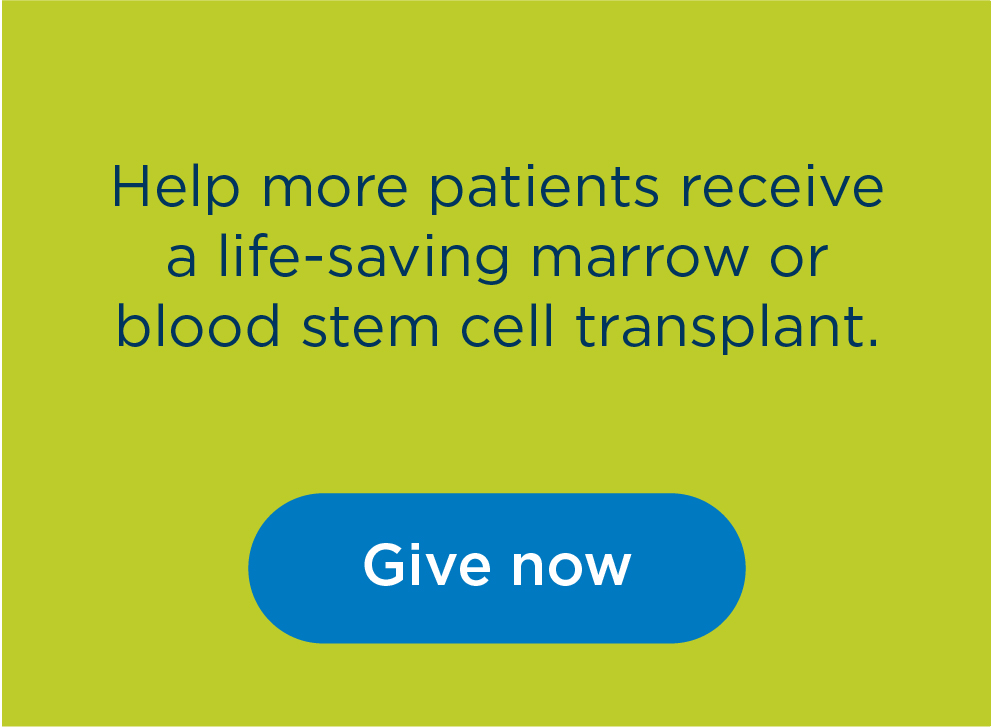If you’re a cancer patient who has been treated with a cellular therapy or bone marrow transplant, your health is significantly more vulnerable than most people. In normal times. More so during a pandemic that’s killed more than 2.5 million people around
the world and infected 119 million.
Make no mistake—these cancer patients have been recommended to get COVID-19 vaccines to protect them: The National Comprehensive Cancer Network (NCCN) has advised that COVID-19 vaccination occur at least
three months after cellular therapy. But the NCCN also states that COVID-19 vaccine efficacy in the setting of cancer care and a weakened immune system is unknown. Let’s repeat that: Vaccine efficacy in the setting of cancer care and a weakened immune
system is unknown. Uncertainty abounds for patients, caregivers and their medical teams. When should I get vaccinated? How long will the vaccine’s immunity last? When do I need a booster? Is the vaccination schedule different for me than for everyone else?
The
trouble is that no one knows how effective the COVID-19 vaccines are in this population, the optimal time to get the vaccines after treatment and how long the effects last. Not to mention how safe they are. Why? Because the technology involved in
mRNA vaccines hasn’t been studied in transplant and cellular therapy patients. Experts do know, however, that the effectiveness of traditional vaccines wanes more quickly in patients who’ve had cellular therapy. If immunity wanes from their COVID-19
vaccines too, these patients are at great risk. Immunocompromised patients are at higher risk for COVID-19 illness, severity of symptoms and death. Knowing whether immunity to a disease, including SARS-CoV-2, has faded or is robust is critical—especially
if the immune system is compromised from cancer treatment. The only way to determine this is through research.
Answering these questions—knowing the unknown—is a top priority for the CIBMTR® (Center for International Blood and Marrow Transplant
Research®), a research collaboration between the National Marrow Donor Program® (NMDP)/Be The Match® and the Medical College of Wisconsin. CIBMTR and Blood and Marrow Transplant Clinical Trial Network® (BMT CTN) recently embarked on a large multicenter
observational study of 516 patients who had hematopoietic stem cell transplantation or chimeric antigen receptor (CAR) T-cell therapy in the last 12 months and subsequent COVID-19 vaccination.
Increasingly, CIBMTR and the scientists and
physicians associated with it are a leading force in research, with involvement in more than 200 studies. What kind of studies, you might ask? Studies focused on patients with cancer and nonmalignant life-threatening blood diseases whose therapy includes
cell transplants and cellular therapies. Today, CIBMTR is the leading organization studying these patients’ response to COVID-19 vaccines. What experts learn in this study will inform the recommendations for this patient population—and save lives.
The
study that’s enrolling now will compare vaccine response in patients who were vaccinated less than six months after completing cell transplant or cellular therapy with patients who got the vaccine six to 12 months after completing therapy. Patients
involved in the study live across the U.S. and were enrolled at 30 participating locations. Patients in the study will have blood samples collected at four points during the study, and researchers will analyze them to determine patients’ immune responses
to the vaccine. Results are expected to be available in summer 2022.
At that time, physicians will know the unknown and be able to provide transplant and cellular therapy patients with evidence-based recommendations about COVID-19 vaccinations
with confidence.
A bonus: The multicenter research network created for this study by CIBMTR and the BMT CTN can be reactivated to study additional SARS-CoV-2 vaccines as they’re developed. This will help to make sure the immunocompromised
patient population isn’t left out in the cold. The unknown can be known on an ongoing basis.
A huge thank you to our partners supporting this critical study through philanthropy including American Society for Transplantation and Cellular Therapy, Fred Hutchinson Cancer Research Center, The Carl Marks Foundation, Inc., Cindy and Gary Frischling, Labcorp, Leukemia & Lymphoma Society, Vicki Logan, Multiple Myeloma Research Foundation, The National Cancer Institute, The National Heart, Lung, and Blood Institute, and Novartis Pharmaceuticals Corporation.
Study conducted by Study Chairpersons: Marcie Riches, Joshua A Hill, Miguel Angel-Perales, Protocol Officer: Mary M Horowitz , Study Team: Michael Martens, Jeffery Auletta, Aliyah Baluch, Kavita Bhavsar, Madhav V Dhodapkar, Nancy DiFronzo, Alyssa Gregory, Alan Howard, Ryo Nakamara, Kristin Peyton, Zainab Shahid, Elad Sharon, Ashely Spahn, Amir Toor, Stephanie Waldvogel, Jo-Anne Young.
 " />
" />


